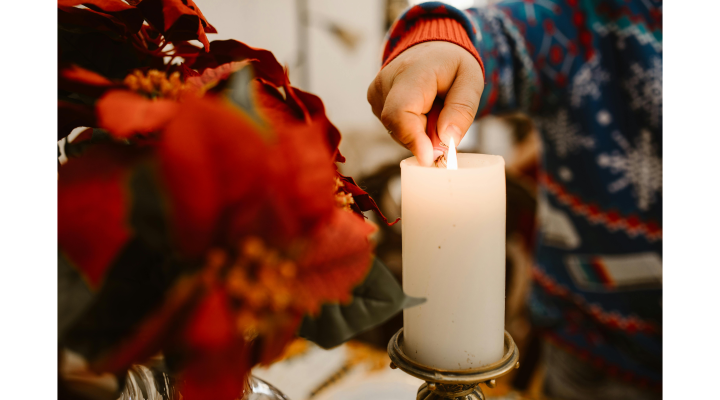FREE Shipping on Orders Over $125*
Menu
-
-
Occasions
-
Recipients
-
Products
-
Baptism
-
Anniversary
- 1st Anniversary
- 2nd Anniversary
- 3rd Anniversary
- 4th Anniversary
- 5th Anniversary
- 10th Anniversary
- 15th Anniversary
- 20th Anniversary
- 25th Anniversary
- 30th Anniversary
- 35th Anniversary
- 40th Anniversary
- 45th Anniversary
- 50th Anniversary
- 55th Anniversary
- 60th Anniversary
- 65th Anniversary
- 70th Anniversary
-
Pets & Pet Lovers
-
Sympathy & Memorial
- Furnitures
- Engagement & Wedding
-
- 419-445-4200
- Login

FREE Shipping on Orders Over $125*
occasions
anniversary
Coping with a Death Anniversary: How to Navigate the Pain and Find Healing
by Lifesong Staff February 06, 2025 5 min read

The anniversary of a loved one’s death is often a profoundly emotional time. It serves as a reminder of their passing, but also of the love, memories, and impact they had on your life. For many, this day brings a mix of emotions: grief, longing, and sometimes even guilt for moving forward. Learning how to navigate a death anniversary can help you honor your loved one while finding ways to cope with the pain. In this blog, we’ll explore strategies to help you manage your emotions and make this day a meaningful part of your healing journey.
Why Death Anniversaries Can Be Difficult
A death anniversary, sometimes referred to as a “year’s mind” or “yahrzeit” in various cultures, is a poignant milestone. It often brings grief back to the surface, even if significant time has passed since the loss. The day may remind you of:
-
The loss itself: You may relive the circumstances of your loved one’s passing, which can reopen wounds.
-
Unfinished business: If there were unresolved conflicts or things left unsaid, these feelings may resurface.
-
Change and time: The realization of how life has changed without your loved one can be bittersweet or painful.
Understanding why this day affects you so deeply can help you prepare for the emotions it may bring.
How to Cope with a Death Anniversary
There is no “right” way to handle a death anniversary. What works for one person may not work for another, so it’s essential to find what feels meaningful and comforting for you. Here are some coping strategies:
1. Acknowledge Your Feelings
It’s normal to feel a range of emotions on this day. You might experience sadness, anger, guilt, or even moments of joy as you remember happier times. Instead of suppressing these emotions, allow yourself to feel them. Journaling, talking to a trusted friend, or simply sitting with your thoughts can help you process your emotions.
2. Plan Ahead
Anticipating the anniversary can help you feel more in control. Decide how you want to spend the day, whether it’s quietly reflecting, being with others, or keeping busy. Having a plan can reduce anxiety and give the day a sense of purpose.
3. Create a Ritual
Rituals can provide a sense of structure and meaning. Consider:
-
Lighting a memorial candle or personalized lantern: This can be a symbolic gesture to honor your loved one’s memory. If you don't want to mess with fire, but like the idea of soft lighting, check out this beautiful cardinal memorial lantern below.
-
Visiting their resting place: Spending time at their grave or memorial site can be a comforting way to feel connected.
-
Holding a moment of silence: Take a few minutes to reflect on their life and the love you shared.
-
Listening to their favorite music or preparing their favorite meal: Small acts like these can bring a sense of closeness.
4. Celebrate Their Life
Rather than focusing solely on the loss, use the anniversary as an opportunity to celebrate their life. Share stories, look through photo albums, or funeral guestbooks that guests wrote stories in, like the guestbook below. Gathering friends and family to share these moments can turn the day into a celebration of their impact on the world.
5. Seek Support
You don’t have to face this day alone. Reach out to friends, family, or a support group. Talking about your loved one and how you’re feeling can be incredibly healing. If you’re struggling deeply, consider speaking with a grief counselor or therapist who can provide professional guidance.
6. Do Something Positive in Their Honor
Channel your grief into action by doing something that reflects your loved one’s values or interests. For example:
-
Volunteer for a cause they cared about.
-
Make a donation in their name.
-
Plant a tree or garden as a living tribute.
-
Write a letter to them: Express your thoughts, updates, or things you wish you could share with them.
- Visit their resting place: Spending time at your loved one's gravesite or memorial can offer a sense of peace and connection. Bringing flowers, lighting a candle, or placing a memorial garden solar cross can make the visit even more meaningful. This cross below, which lights up at night due to a mini solar panel on top, is a popular way to honor loved one.
7. Practice Self-Care
Grief can be physically and emotionally draining, especially on significant dates. Make self-care a priority by:
-
Getting enough rest.
-
Eating nourishing foods.
-
Engaging in calming activities like yoga, meditation, or taking a walk in nature.
-
Allowing yourself to take a break from responsibilities if needed.
8. Reflect on Your Growth
While the loss of a loved one is life-altering, it’s also an opportunity for personal growth. Use the anniversary as a time to reflect on how you’ve changed and what you’ve learned since their passing. This doesn’t mean minimizing your grief but recognizing your resilience and ability to move forward while keeping their memory alive.
How Cultures Around the World Observe Death Anniversaries
Different cultures have unique ways of honoring death anniversaries, offering inspiration for how you might approach the day:
-
Día de los Muertos (Day of the Dead): Celebrated in Mexico, this holiday involves creating altars (ofrendas) with photos, favorite foods, and mementos of the deceased.
-
Qingming Festival: In China, families visit graves, clean headstones, and make offerings to honor their ancestors.
-
Yahrzeit: In Jewish tradition, a candle is lit, and prayers are recited to commemorate the anniversary of a loved one’s passing.
-
All Souls’ Day: In many Christian communities, this day is dedicated to praying for the souls of the departed. Some people like to display a memorial picture frame showcasing their loved one during this day. This dual-photo memorial frame below is a popular option.
These traditions highlight the universal need to remember and honor loved ones while offering ways to find comfort and connection.
Common Myths About Grieving on a Death Anniversary
Grieving is deeply personal, yet misconceptions can add unnecessary pressure. Let’s debunk some common myths:
-
Myth: “You should feel better after the first year.”
-
Grief doesn’t follow a timeline. It’s normal to feel waves of sadness even years later.
-
-
Myth: “You need to stay busy to distract yourself.”
-
While staying occupied can help, it’s equally important to acknowledge and process your feelings.
-
-
Myth: “Talking about them will only make it harder.”
-
Sharing memories often brings comfort and helps keep their legacy alive.
-
When to Seek Professional Help
If the death anniversary triggers overwhelming emotions or interferes with your daily life, it may be time to seek professional help. Signs you might benefit from counseling include:
-
Persistent feelings of hopelessness or despair.
-
Difficulty functioning at work or home.
-
Avoidance of social interactions.
-
Intense guilt or self-blame related to the loss.
A grief counselor can help you navigate these emotions and develop healthy coping strategies.
Conclusion
The anniversary of a loved one’s death is undoubtedly a difficult day, but it can also be an opportunity for healing, reflection, and connection. By planning ahead, honoring their memory, and practicing self-care, you can navigate the pain while celebrating the love and legacy they left behind.
Remember, grief is a journey without a fixed timeline. Be gentle with yourself and seek support when you need it. Whether through rituals, reflection, or leaning on loved ones, finding ways to honor your emotions and their memory can turn a day of sorrow into one of meaningful remembrance.
Leave a comment
Comments will be approved before showing up.
Also in Blogs

Christmas Ornaments for Deceased Pets: Keeping Their Memory Alive During the Holidays
by Lifesong Staff December 06, 2025 3 min read

Creating New Traditions: Memorial Candle Lighting Ceremonies
by Lifesong Staff December 05, 2025 5 min read

Christmas Ornaments for Loved Ones Lost: Keeping Memories Alive
by Lifesong Staff December 04, 2025 3 min read




